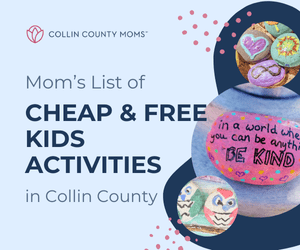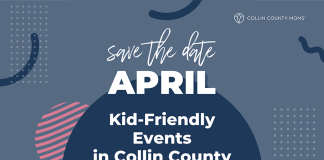Full confession up front.
I have self-diagnosed ADHD. After my mom got diagnosed, my sister was quick to follow up and get formally diagnosed. My brother-in law-has also been diagnosed. At the time, I thought that it made sense for them, but not for me. They were so much more energetic and outgoing than me. Always going.
But me? Oh, I can sit still. Especially if I’m depressed or emotionally depleted…I mean, I could win binge-watching awards if those were things. But it turns out that feeling depleted and depressed actually can tie into experiencing ADHD, even the ability to tune out and binge watch something excessively (YESSSS Netflix! I am still watching!! Go judge someone else). But all that to say, I have not officially been diagnosed by a professional. I’m not in a rush because 1) I came to this conclusion at the height of the pandemic, and 2) my symptoms and coping mechanisms are such that I’m comfortable not taking medication for it right now. And I have discussed that with my doctor.
So for this article I interviewed my family members who have been professionally diagnosed as adults with ADHD, and have more than a year’s worth of experience with ADHD coping mechanisms.
My Struggles as an Adult with ADHD
- Keeping a single calendar going.
- Staying on task, especially in my house where there are a trillion things to work on.
- Starting something I know I can’t finish in one sitting.
- Replying to messages and emails (when my anxiety is bad, ya know, like during a pandemic, I even struggle to delete the junk email)
- Struggling to leave on time. Or leaving on time with a full diaper bag, but leaving the prepped bottle in the fridge.
- Feeling easily overwhelmed.
- Scheduling and social anxiety.

Dealing with an ADHD Diagnosis as an Adult
First, talk to your doctor, get a physical exam, and review your medical history with them. This will help not just with a diagnosis, but to make sure that your symptoms are not caused by something else. It should also help you determine if you can take medication, if it is recommended. Your doctor should direct you toward a clinical evaluation. My mom avoided the waiting list by paying for a private evaluation. For kids, this also includes one or more school evaluations. Then you can review the clinical evaluation with your doctor to determine the best way to treat your symptoms. There are so many options, from prescriptions to diet changes to therapies, that can help you thrive as an adult with ADHD.
There is still so much stigma about ADHD being over diagnosed and over medicated. But getting an ADHD diagnosis as an adult, and sometimes treating it with medication, can be positively life altering. It can be such a positive thing because it can help us to get the tools that we need to thrive.
How an Adult ADHD Diagnosis Can Help:
- It can help you understand past struggles and evaluate how you coped.
- A diagnosis can be reassuring. You’re not lazy; your body is overwhelmed.
- Medication has made a huge, and positive, difference in my life.
- Being diagnosed opens up a new world of tools and coping mechanisms.
- It can reduce anxiety. (Anxiety and depression are often symptoms of untreated ADHD.)
- Understanding more about yourself and how your brain works can help you thrive!
10 Tips For Adult ADHD
Something I learned quickly as a teacher, is that neuro-divergent brains adapt very quickly. So a trick that works for a couple of weeks might not work next week. And that’s OK. You don’t have to throw it out the window! It might work again in a couple of weeks or months.
Also, know that some things work for some people, and not for others. Girls with ADHD usually present different symptoms than boys with ADHD do. There are also a lot of differences between the symptoms of someone with a hyperactive case and a non-hyperactive case.
Having tricks in your tool belt and grace for yourself are so important as you learn to thrive with adult ADHD. Below are tricks from my family for dealing with adult ADHD, but we would love for you to comment with tips and tricks that work for you!
1- Writing things down and keeping a central calendar helps a lot. (Keeping a long to do list generally does not help my productivity because it overwhelms me. But making lists is critical to my success.)
2- If I’m able to focus and have energy, I do some extra work right then so I can give myself grace on the days when I just cannot focus.
3- I have a tendency to want to jump into new hobbies, changes, and big purchases quickly on random impulses. Instead of just waiting overnight to see if I’m still interested, I now try to wait a week to see if I’m still invested.
4- Experiment and figure out what things help keep your thoughts on track. For me, music really helps me focus a lot.
5- Caffeine is pretty controversial. Half of us avoid it, the other half feels like it helps them to function better. Avoiding stimulants and inflammatory food can be helpful.
6- Color coding: I color code everything; it helps me keep me keep things in order.
7- Walk, exercise, do yoga: Doing anything to move my body regularly helps keep up that serotonin. While I’m moving, my brain can work through things.
8- Use the Five-Minute Method. Setting a timer for five minutes at a time and keep doing that one task until the timer goes off. I usually either finish early, or just keep going because I’m finally focused on it.
9- I’m pretty good at preparing before we leave the house, but I always struggle to leave on time. Getting ready early and giving myself 10 extra minutes makes a huge difference.
10- Give yourself a lot of grace. It’s hard to be a human, and ADHD can be hard, but you matter and your life circumstances do not define who you are.
Learning How to Cope with my ADHD Diagnosis as an Adult:
- ADHD: You Think You Know but You Have No Idea
- I’m Not a Bad Mom- I Just Have ADHD
- When It’s More Than ADHD: Multiple Behavioral Diagnoses













